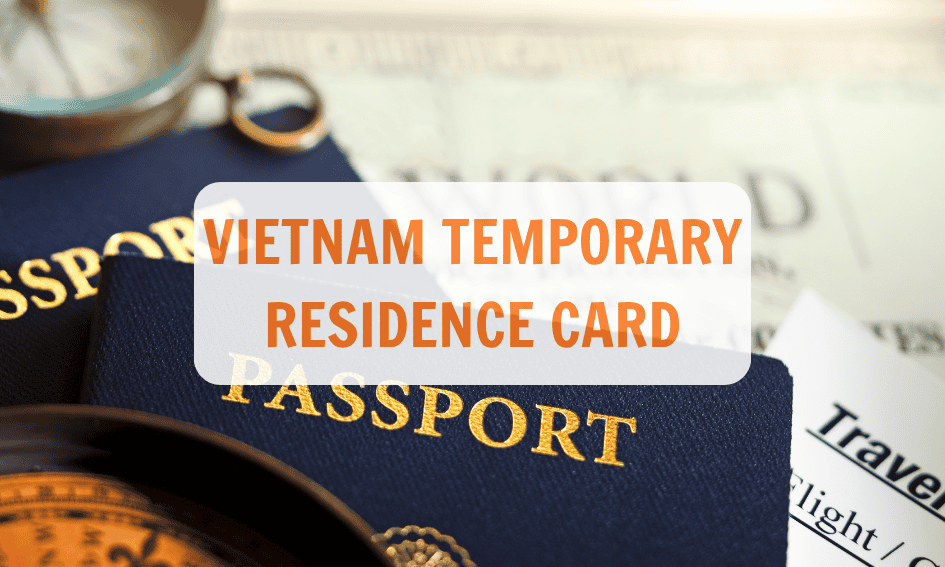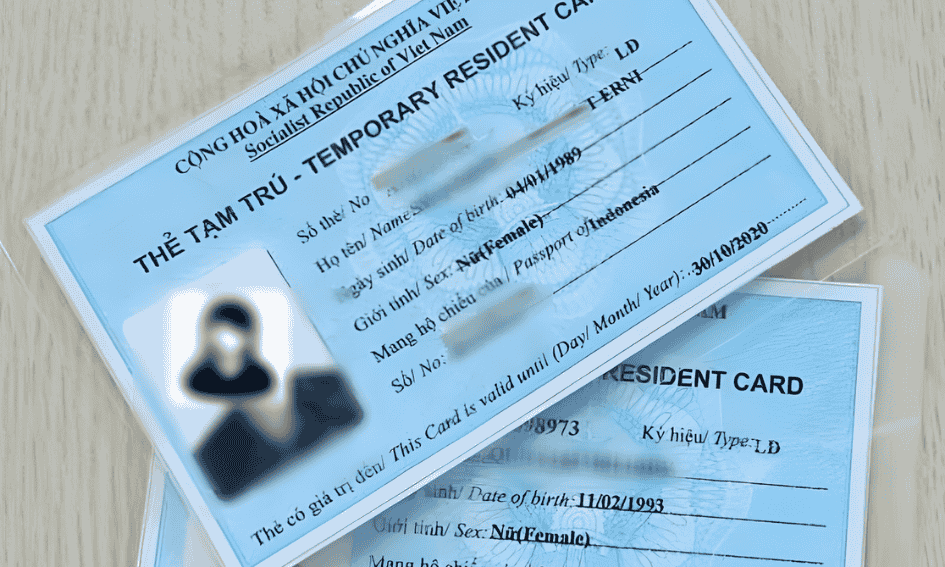Vietnam Temporary Residence Card: Types, Rules, and Rights
01 Oct, 2025

The Vietnam Temporary Residence Card (TRC) is more than just a travel document—it is an essential legal status for foreigners who plan to reside in Vietnam beyond the short-term limits of a visa. Regulated under the Law on Entry, Exit, Transit and Residence of Foreigners, the TRC offers expats and investors long-term stability while defining clear rights and obligations. Depending on your purpose of stay—such as employment, investment, or family reunion—different types of TRCs are available, each with its own conditions and duration. For those living in Ho Chi Minh City, where legal compliance is closely monitored, understanding these requirements is crucial to ensure smooth and lawful residence.
Legal Framework of TRC in Vietnam
The issuance and management of the Vietnam Temporary Residence Card (TRC) is governed by a comprehensive legal system. The foundation is the Law on Entry, Exit, Transit and Residence of Foreigners in Vietnam, which sets out who is eligible, how long they may stay, and the obligations they must fulfill.
Further details are provided in circulars and decrees issued by the Ministry of Public Security, outlining specific procedures, required documents, and responsibilities of both applicants and sponsoring entities (such as employers or landlords).
Key points of the legal framework:
- Law on Entry, Exit, Transit and Residence of Foreigners in Vietnam: primary legal foundation for TRC issuance and renewal.
- Ministerial decrees and circulars: specify application steps, fees, and required documents.
- Authorities’ responsibility: Immigration Department and local police must verify information and process applications.
- Applicant’s responsibility: foreigners and their sponsors must provide accurate information, valid documents, and complete declarations on time.

What is a TRC and Why It Matters?
A Vietnam Temporary Residence Card (TRC) is an official document issued by the Immigration Department that allows foreigners to legally stay in Vietnam for an extended period. Unlike a short-term visa, the TRC functions both as a residence permit and as valid identification for various daily activities.
Key functions of a TRC:
- Serves as a long-term residence permit, valid from 1 to 5 years.
- Replaces multiple-entry visas, eliminating the need for frequent visa runs.
- Acts as legal identification when opening bank accounts, leasing or buying property, or enrolling children in school.
- Provides stability for foreigners planning to live, work, or invest in Ho Chi Minh City.
Why it matters compared to a visa:
- Visa: Short-term, limited to tourism, business trips, or short work assignments.
- TRC: Long-term, designed for continuous residence and legal stability.
- Visa: Requires frequent renewals, creating uncertainty.
- TRC: Grants stronger legal recognition, reducing administrative burdens for expats and investors.
Types of Vietnam TRC
Depending on the purpose of stay, foreigners in Vietnam may apply for different types of Temporary Residence Cards (TRCs). Each type comes with specific conditions, supporting documents, and validity periods. Understanding the differences helps applicants prepare correctly and avoid delays in processing.
Main types of TRC in Vietnam:
- Investor TRC: Issued to foreign investors or company representatives. Requires an investment certificate or business registration license.
- Work Permit TRC: Granted to foreign employees with valid work permits and a guarantee from their employer.
- Family TRC: For spouses and children of Vietnamese citizens or foreigners already holding a TRC. Proof of family relationship (marriage or birth certificate) is required.
- Specialist, Lawyer, or Student TRC: Granted to professionals such as lawyers, technical experts, or students with official approval from Vietnamese authorities.
Eligibility for TRC
Not all foreigners in Vietnam are automatically entitled to a Temporary Residence Card (TRC). The card is only granted to specific groups who meet the legal requirements, usually supported by an employer, family member, or investment license.
Eligible applicants include:
- Foreign employees working in Vietnam with a valid work permit and employer sponsorship.
- Investors or business owners holding an investment certificate or enterprise registration.
- Spouses and children of Vietnamese citizens or foreigners already holding a TRC.
- Lawyers, experts, and students officially approved by Vietnamese authorities.
- Property owners who meet conditions set out under residence regulations.
Required Documents for TRC Application
When applying for a Vietnam Temporary Residence Card (TRC), having a complete and accurate set of documents is crucial. Missing or outdated paperwork is one of the main reasons for delays or rejections. The required documents vary depending on the applicant’s status, but several core items are always needed.
Standard documents:
- Valid passport and visa.
- Completed TRC application form.
- Passport-sized photos (2–3 copies).
- Lease agreement or property ownership certificate.
Supporting documents depending on applicant type:
- Employees: Valid work permit and company guarantee letter.
- Investors: Investment license or enterprise registration certificate.
- Family members: Marriage certificate, birth certificate, or proof of family relationship.
- Lawyers/experts/students: Official approval documents issued by Vietnamese authorities.
TRC Application Procedure in Ho Chi Minh City
In Ho Chi Minh City, TRC applications are processed at the Immigration Department, located at 196 Nguyen Thi Minh Khai Street, District 3. While the procedure is straightforward, delays often occur if documents are incomplete or if the initial residence declaration has not been made by the landlord.
Step-by-step process:
- Step 1: Prepare documents: Collect all required and supporting papers according to applicant type.
- Step 2: Submit application: File the application at the Immigration Department of HCMC.
- Step 3: Pay fees: The processing fee depends on TRC type and duration.
- Step 4: Processing time: Normally 5–7 working days, but may take longer in peak periods.
- Step 5: Receive TRC: Collect the card in person or via authorized representative once approved.
Important note: Applicants should confirm that their short-term residence registration has been filed properly, as Immigration will cross-check this record during TRC processing.
Validity, Renewal, and Termination
A Vietnam Temporary Residence Card (TRC) is valid for a limited duration and must be renewed before it expires. While the TRC offers long-term stability, it can also be revoked under certain circumstances.
Validity:
- TRCs are typically issued for 1 to 5 years, depending on the applicant’s category.
- The validity cannot exceed the remaining duration of the applicant’s passport, work permit, or investment license.
Renewal:
- Applications for renewal should be submitted at least 5–15 days before expiration.
- Updated documents (extended work permit, renewed lease, or investment papers) must be provided.
- Delayed renewal may result in fines or a temporary gap in legal residence.
Termination or revocation:
- TRC holders leave Vietnam permanently without notifying authorities.
- Work permit, marriage, or investment certificate is canceled or expired.
- Violations of Vietnamese laws or overstaying conditions.
Rights and Obligations of TRC Holders
Holding a Vietnam Temporary Residence Card (TRC) gives foreigners significant legal benefits, but it also comes with certain obligations. Understanding both ensures compliance and helps expats avoid unnecessary risks while living in Vietnam.
Key rights of TRC holders:
- Multiple entry/exit without needing additional visas.
- Stable residence in Vietnam for up to 5 years.
- Ability to open bank accounts, sign leases, and buy property under local regulations.
- Easier access to education and healthcare services.
Main obligations of TRC holders:
- Maintain valid documents (passport, work permit, investment license).
- Declare temporary residence with local police or online systems when changing address.
- Renew TRC on time before expiration.
- Comply with Vietnamese laws and avoid activities beyond the scope of the TRC.
Practical Notes for Expats in Ho Chi Minh City
Ho Chi Minh City is home to the largest expat community in Vietnam, which makes TRC applications frequent but also closely monitored. Expats living in districts such as Thao Dien, An Phu, or Binh An should be aware of certain practical issues that often arise during the application process.
Key notes for HCMC expats:
- Immigration office location: All TRC applications must be submitted at the Immigration Department, 196 Nguyen Thi Minh Khai Street, District 3.
- Landlord responsibilities: Many landlords are unfamiliar with online residence declarations, which can cause delays; tenants should follow up actively.
- Serviced apartments: Building management in serviced apartments often assists with residence declarations, but tenants should still double-check.
- Peak times: Application volumes increase before holidays and year-end; plan ahead to avoid long processing times.
- Professional support: Consider using legal or relocation services if you are not confident with the paperwork.
Common Issues and How to Avoid Them
Even with clear regulations, many foreigners in Vietnam still face problems when applying for or renewing a Temporary Residence Card (TRC). These mistakes not only delay the process but may also result in fines or rejected applications.
Frequent issues and tips to avoid them:
- Incomplete documents: Double-check the checklist; missing photos or outdated work permits are common reasons for rejection.
- Late renewal: Submit your application at least 10 days before expiry to avoid penalties.
- Confusion between visa and TRC: Remember that a visa is short-term, while a TRC is for long-term residence.
- Incorrect landlord–tenant information: Ensure that the landlord has properly declared your temporary residence online.
- Over-reliance on agents: Using services can help, but always keep copies of your documents and stay updated on your own application status.

